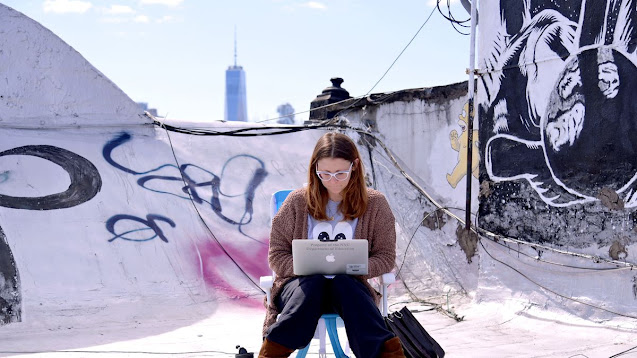''' '' PRECIOUS AMERICA
PRECIOUS ''' '' : STUDENTS
THE FUTURE ALL ROUND LEADERSHIP OF THE STUDENTS OF PRECIOUS AMERICA IS CRITICAL to the weal and the will of building a better world. Not perfect but a continuous flash drive of a better, better world.
!WOW! is very honored to have some of America's best sons and daughters as the Founder Framers of The World Students Society. !WOW! is the exclusive ownership of every great student of America, just as it is the ownership of every student in the world.
The World Students Society rises to give the students of America a standing ovation for their great country, for their great might, for their great institutions, and for their great examples.
!Lessons On A Flash Drive : Millions of U.S. students without reliable Internet access struggle to learn.!
MILLIONS of American students are grappling with challenges, learning remotely without adequate home Internet service. School districts like the one in Robeson County have scrambled to provide students with laptops, but many who live in low-income and rural communities have difficulty logging on.
The technology gap has prompted teachers to upload lessons on flash drives and send them home to dozens of students every week. Some students / children spend school nights crashing at more-connected relatives' homes so they can get online classes the next day.
About 15 million K-12 students lived in households without adequate online connectivity in 2018, according to study of federal data by Common Sense, an education nonprofit group that tracks children's media use.
IN PRECIOUS AMERICA - IN BALTIMORE - where a recent study found that nearly 20,000 households with school-age children lacked broad-band Internet or computers -
The public school system is providing Internet connectivity to an estimated 44,000 students, or 55 percent of the district's total enrollment, officials said.
The challenge of digital divide can be particularly daunting in states like North Carolina, home to nation's second largest rural population and a geography that spans mountains, swamps and barrier islands.
ABOUT 100,000 STUDENTS of the state's 1.5 million K-12 were unable to connect to online services in August, according to the Department of Information Technology.
More than 75,300 cellular hot spots were provided to schools by late October, and the state is trying to connect other students with public W1-Fi locations and community grants for broadband infrastructure.
BUT politics has also hampered the state's connectivity. In 2016, Republican lawmakers won a legal battle to halt the spread of municipal broadband providers, which had increased competition by serving residents where commercial networks had been unwilling to go.
In Orange County, which is home to the University of North Carolina at Chapel Hill and just west of some of the state's biggest cities, more than 5,200 households lack broadband Internet access, including an estimated 1,100 students in the local school district, said Monique Felder, the superintendent.
She noted with frustration that the district is just a few miles away from the state's prominent Research Triangle Park, where IBM, Cisco an dozens of other information technology companies employ thousands of people.
''It's un-American,'' said Ms. Felder, who pointed to unaffordable pricing and a lack of cell towers as having contributed to the problem.
''I can't wrap my head around the fact that we live in a place where you have all this technology, yet we have families who can't access the Internet in the comfort of their home.''
In September, the district's school board voted to continue with remote learning for most students through the end of the semester, citing health concerns, despite Ms. Felder's recommendation for a combination of in-person and online classes.
The lack of Internet access has reshaped the home lives of some students. Clarissa Breedan, an unemployed cosmetologist, lives with her parents and two children in a double-wide trailer home . outside the small town of Roland.
This fall, her four nieces have also stayed there during the week so they can get online for classes, only going home to their parents on weekends.
Jose Hunt lives on the outskirts of Roland; the only Internet access there is via satellite for $140 per month. But she canceled her subscription in September after a barrage of extra charges, incurred from remote classes made the service unaffordable. And a broadband provider said laying a cable to her home would cost $12,000.
''I'd rather not have Internet if I have to pay that much,'' said Ms. Hunt, whose disabled and whose husband works odd jobs.
Without it, her son Nehemiah, 14, has been forced to rely on flash drives to do the schoolwork, with the devastating results. ''In school I made all A's and B's,'' he said. ''Now I'm failing.''
The Honor and Serving of the Latest Global Operational Research on The State of the World and Students continues. The World Students Society thanks author Dan Levin.
With respectful dedication to the Grandparents, Parents, Students, Professors and Teachers of the world. See Ya all prepare and register for Great Global Elections on The World Students Society : wssciw.blogspot.com and Twitter - !E-WOW! : The Ecosystem 2011 :
''' Fair - Fare '''
Good Night and God Bless

.png)


0 comments:
Post a Comment
Grace A Comment!